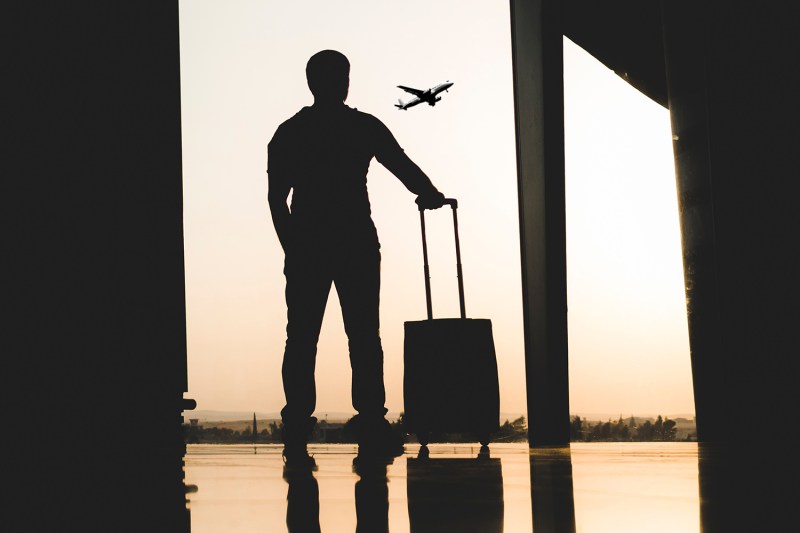We’ve all experienced the anxiety of waiting at the baggage claim, watching the carousel spin endlessly while our belongings seem to have embarked on a separate journey of their own. Delayed baggage is an all-too-common occurrence in the realm of air travel, disrupting plans and leaving travelers stranded without their essential belongings. However, what many passengers don’t realize is that they may be entitled to delayed baggage compensation. Whether you have found yourself in this frustrating situation or are just looking to arm yourself with knowledge before your next flight, understanding the ins and outs of delayed baggage compensation is essential.
Understanding airline policies on delayed baggage

According to the U.S. Department of Transportation (DOT) regulations, airlines are required to compensate passengers for “reasonable, verifiable, and actual incidental expenses” incurred due to delayed baggage. This compensation includes the cost of essential items such as clothing, toiletries, and other necessities that you may need to purchase while waiting for your bags to arrive.
It is also important to note that airlines are not permitted to set an arbitrary daily amount for interim expenses. Alternatively, they must provide reasonable compensation based on the specific circumstances of the delay.
The DOT also explains that there is a difference between lost and delayed baggage. Baggage is typically considered “lost” if it isn’t returned to you after 5-14 days, depending on the policies of the specific airline. Once baggage is categorized as lost, the airline’s liability and compensation requirements may change, so it is important to stay informed throughout the process.
Steps to take when your bags are delayed

If your bags are delayed, it is important to take action immediately and follow the proper steps.
- Report the delay to the airline: As soon as you realize your bags are delayed, report the issue to the airline staff at their airport. You’ll then file a Property Irregularity Report (PIR), in which you will include the details of the contents of your bag.
- Document all expenses related to the delay: Make sure you keep receipts for any essential items you purchase while you are traveling without your bags. You’ll also want to track the number of days your bags were delayed, as this can be critical information when negotiating for compensation.
- Stay in communication with the airline: In this situation, you may have to be your own advocate. Follow up regularly with the airline on the status of your bag and provide them with any updates or new information that may help your claim.
Determining if you deserve delayed baggage compensation

Determining whether you deserve delayed baggage compensation can be a complex task, and there are various factors you need to consider.
- Understand the airline’s policies: Some airlines require a certain duration of delay before compensation can be claimed.
- Cause of delay: Compensation may be warranted for issues within the airline’s control, such as mishandling or logistics errors. However, weather delays or other external factors may not be eligible for compensation.
- Impact of delay: Compensation is often linked to the extent of the disruption experienced.
Negotiating with the airline for compensation
If you believe you deserve compensation, then you need to be prepared to negotiate with the airline. Be sure to provide detailed documentation of your expenses, such as receipts and a timeline of the delay. Refer to the airline’s policies and the DOT regulations to support your claim.
According to DOT regulations, airlines are liable for up to $3,800 per passenger for lost, damaged, or delayed bags from domestic flights. For most international flights, a treaty called the Montreal Convention sets liability limits. Under this treaty, the maximum baggage liability is around $1,700.
If you find that the initial offer from the airline is unsatisfactory, be persistent and escalate the issue if needed. As a last resort, you can consider filing a complaint with the DOT.
Major airlines’ policies on delayed baggage

In the end, delayed baggage compensation depends on the specific airline you are flying. These are the policies of a few of the United States’ major airlines.
American Airlines
Your delayed bags must be reported to the service office within four hours of arriving at your destination (or 12 hours if you used Bags VIP Luggage Delivery). If your flight is international, then you must report it before leaving your destination airport. You can then submit your compensation claim on the American Airlines website.
Delta Air Lines
With Delta Air Lines, you must report your delayed luggage at the baggage service center. Delta generally determines reasonable expenses to be $50 per day for the first five days that your bag is delayed. You can submit a baggage claim form on Delta’s website.
JetBlue
JetBlue does not require you to report your delayed bags in person. Instead, you must fill out their online form within four hours of landing. You can then submit receipts online for the airline to reimburse.
Southwest Airlines
Southwest allows you to report your delayed luggage at the airport, online, by phone, or via email.
United Airlines
For delayed baggage with United Airlines, you must report the issue within 24 hours of a domestic flight and 21 days of international flights. You can do this at the airport or online.




